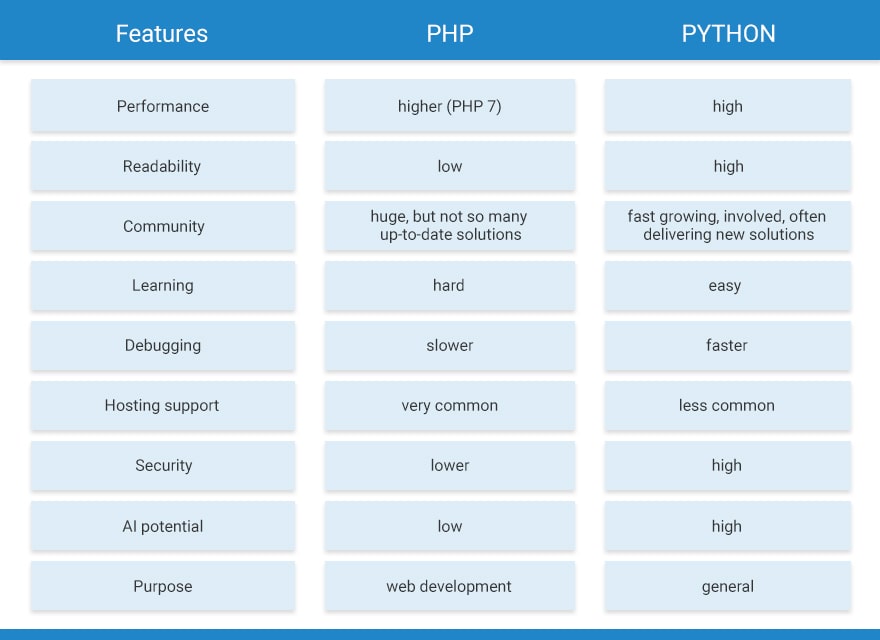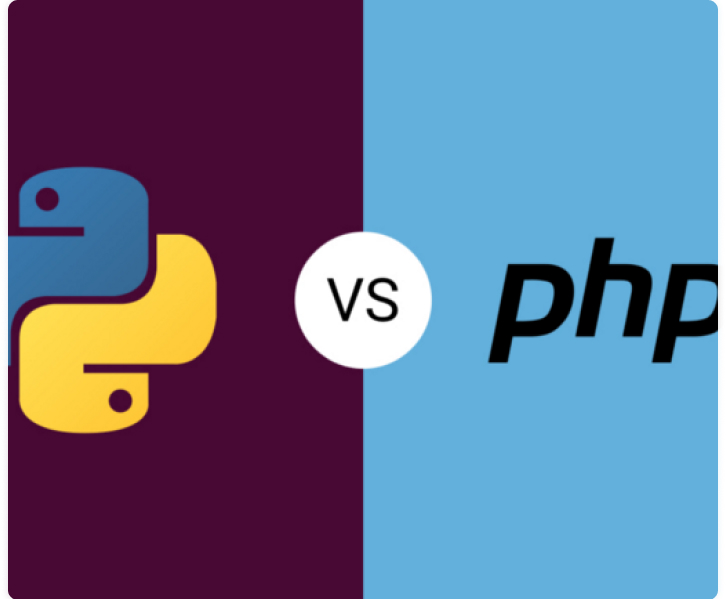Today the web market is all about interactive websites and mobile applications. Every 3 out of 5 businesses have tailor-made business websites and mobile apps. Thanks to mobile and web app development companies that develop user-friendly and functional applications. When it comes to building web or mobile applications, backend development plays the most vital role; it is like the backbone of the app development process.
A functional backend typically leads to interactive application development. In backend development, two coding languages have gained tremendous fame; these languages have always been a hot topic of discussion among the developer’s community and enterprises known as Python and PHP. In this article, we bring you all the significant differences between both languages so that you can select once and for all which is the worthier language. But first, let’s have a precise introduction to Python and PHP.
What is Python?
What is PHP?
Pros and Cons of Python language
This section discusses the benefits and drawbacks of utilizing the Python programming language for web app development:
Pros:
- A general-purpose, versatile and object-oriented language to employ across different fields.
- Easy to use, read, learn and maintain
- Features cross-platform code reusability
- Develops GUI apps.
- Features automatic garbage collection
- Can integrate with programming code of other languages like Java or C++
- Not much useful in browsers, mobile computing and mobile app development
- Gigantic for a small and simple app or website
- Error detection sometimes becomes difficult due to dynamic typing
- Duck-typing causes run-time errors
Pros and Cons of PHP language
Below are the top pros and cons of using PHP for web app development:
Pros:
- Features copious pluggable frameworks Open-source and object-oriented
- Sustains top-notch debugging
- Features a large ecosystem
- Provides support for database collection modules
- Gives support for other database interfaces
- Flexible and platform-independent
Cons:
- You cannot change its core behavior
- Impeded and wired performance
- Not suitable for content-based apps
- Uses weak typing that can typically lead to wrong knowledge and data to users
Python vs. PHP – 5 Major Differences

1. Speed
Python is popular for its readability, and unfortunately, slow speeds. The line-by-line execution of Python code by its compilers often affects the program execution time. The dynamic paradigm that it employs implies that there has to be extra work done at the time of execution, and this also has an effect on the overall speed. On the other hand, PHP is much better in comparison. The new release, including JIT(just-in-time) compilers and weak maps, has significantly increased the performance speed of PHP-based applications. For time-intensive web applications, PHP is an obvious contender, but for smaller sites, Python works just as well.
2. Frameworks
3. Debugging and Testing
4. In-built Libraries
Python has exceptional in-built library support for the development of almost all sorts of web applications. The standard library of Python is massive, consisting of different functions for almost every common task. Plus, for any more utilities, pip, the Python package manager, offers a platform for easily importing packages from PyPI, the Python package index.
PHP lags here as compared to Python, but the package repository Packagist is a sturdy backbone holding PHP. The package management is better for Python as compared to PHP, and thus Python receives a win.
5. Database Support
Most PHP frameworks are generally compatible with a number of famous relational databases. Some PHP frameworks additionally simplify database operations by offering object-relational mapping (ORM) systems. The coders can take advantage of the ORM systems to perform CRUD operations without even requiring prior SQL programming experience. The ORMs allow programmers to write object code directly in the PHP programming language. Python is also database-integrable with multiple top relational database language support. But in comparison, PHP is more accessible for database manipulations.
Concluding Thoughts
Even though both Python and PHP perform great in web development, Python wins over PHP in many points. However, this does not mean that you have to hire Python developers and neglect PHP. Both Python and PHP are excellent programming languages that web app development companies can use.
At last, it solely depends on your project needs that whether you want to hire Python developers or PHP developers.




